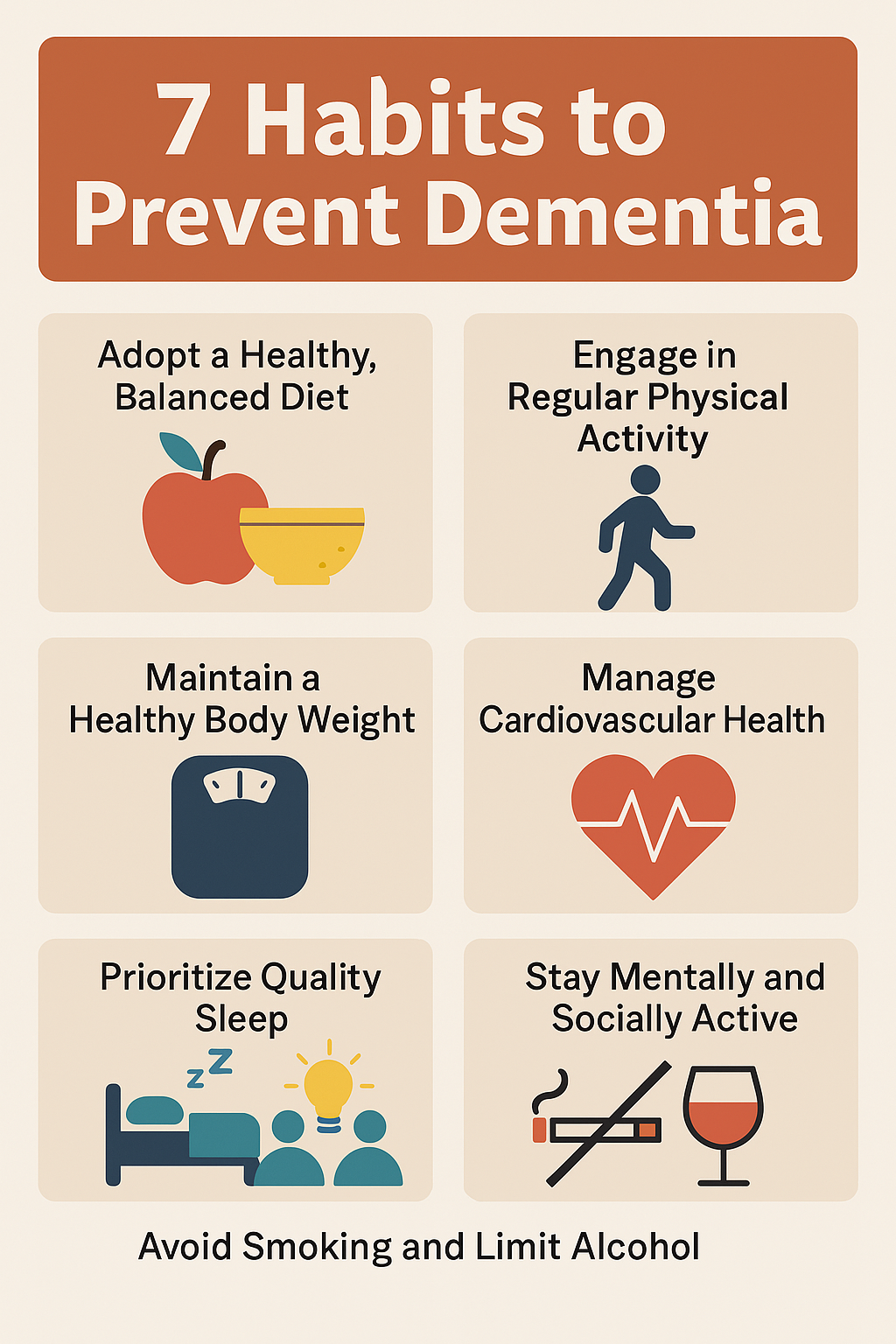Introduction: Why Should You Care About Brain Health?
Dementia is a condition that affects memory and thinking skills. While it mostly impacts older adults, the choices you make today can influence your brain health in the future. By adopting simple, healthy habits now, you can reduce the risk of dementia later in life.
Related Read: Transform your diet-embracing healthier and sustainable food choices
1. Eat a Healthy, Balanced Diet
What you eat plays a big role in brain health. Foods rich in fruits, vegetables, whole grains, lean proteins, and healthy fats (like those found in fish and nuts) provide essential nutrients. This kind of diet supports your brain and helps prevent problems as you age.
2. Stay Active with Regular Exercise
Moving your body isn’t just good for muscles; it’s great for your brain too. Activities like walking, dancing, or playing sports increase blood flow to the brain, which can improve memory and thinking skills. Aim for at least 30 minutes of physical activity most days.
3. Keep a Healthy Body Weight
Maintaining a healthy weight is important for overall health, including your brain. Being overweight can increase the risk of health issues that may lead to dementia. Eating well and staying active can help you keep a healthy weight.
4. Challenge Your Brain
Just like your body, your brain needs exercise. Engage in activities that make you think, such as puzzles, reading, or learning a new skill. These activities strengthen your brain and can help prevent memory problems later on.
5. Get Enough Sleep
Sleep is essential for brain health. During sleep, your brain processes information and clears out toxins. Most people need about 7-9 hours of sleep each night. Good sleep habits can improve memory and concentration.
6. Stay Socially Connected
Spending time with friends and family isn’t just fun—it’s good for your brain. Social interactions can reduce stress and keep your mind sharp. Try to connect with others regularly, whether in person, over the phone, or online.
7. Avoid Smoking and Limit Alcohol
Smoking and excessive alcohol can harm your brain. Quitting smoking and drinking alcohol in moderation can lower the risk of dementia. Making these choices supports better brain health.
8. Protect Your Head
Head injuries can increase the risk of dementia. Always wear a helmet when biking, skating, or playing contact sports. Taking precautions helps keep your brain safe.
9. Manage Health Conditions
Conditions like high blood pressure, diabetes, and high cholesterol can affect brain health. Regular check-ups and following your doctor’s advice can help manage these issues and reduce dementia risk.
10. Keep Learning
Never stop learning! Whether it’s a new language, instrument, or hobby, learning new things keeps your brain engaged and builds cognitive reserve, which can delay the onset of dementia symptoms.
Conclusion: Start Today for a Healthier Brain Tomorrow
Taking care of your brain is a lifelong journey. By adopting these simple habits—like eating well, staying active, and keeping your mind engaged—you can support your brain health and reduce the risk of dementia. Start with one or two changes today, and over time, they can make a big difference.
Read More: Mind Matters: A Comprehensive Guide to Mental Health and Well-Being
Better Health Channel
Alzheimer Society of Canada

